Interview with Epic Labs Founders:
– What is Epic Labs?
– What are The Labs?
– Epic Labs talent culture and methodologies.
The Founders:
Interview with Epic Labs Founders:
– What is Epic Labs?
– What are The Labs?
– Epic Labs talent culture and methodologies.
The Founders:
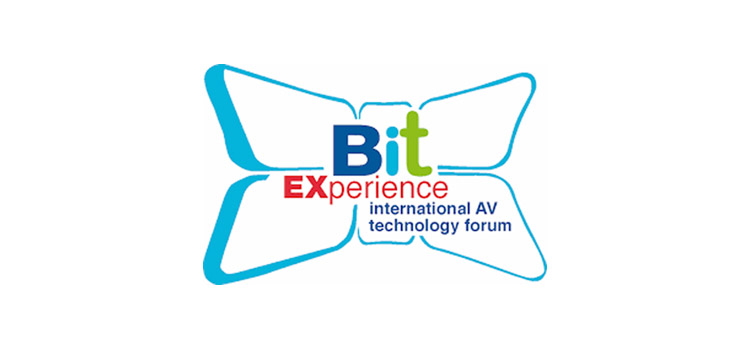
Antonio Tablero, Head of Broadcast Engineering & Technology, FNG Europe and Africa y Epic Labs ofrecen un workshop sobre Inteligencia Artificial para Broadcast en BIT Experience.
Se celebra el miércoles 4 de octubre a las 17:00 en la sala S15+S16 del Auditorio Sur de IFEMA bajo el nombre: Inteligencia artificial real para broadcast. Automatización de metadatos, auto-tagging y moderación de contenidos con Machine Learning.
El impacto de la Inteligencia Artificial en nuestra sociedad se prevé que sea tan importante como el descubrimiento de la electricidad, una ola que sin duda cubrirá el sector de la producción y difusión de contenidos en los próximos años. A pesar de este escenario tan contundente, poca información real hay sobre la aplicación y los beneficios que aporta esta tecnología a la industria Broadcast y Media, y sobre todo, cómo puede utilizarse hoy en día, sin necesidad de esperar al futuro.
En cuanto al contenido, se expondrá un caso de uso actual sobre moderación automática de contenidos y auto-tagging. Por otra parte, se explicarán cuáles son las bases para abordar un proyecto de Inteligencia Artificial aplicado a entornos de canales de televisión ya sean tradicionales o Web TV, plataformas de contenidos, así como el amplio ecosistema de empresas de servicios de producción y difusión.
 Alfonso Peletier, Founder & CEO de Epic Labs: “Estamos ayudando a empresas del sector Media en sus procesos de innovación y transformación digital; tecnologías de Deep Learning e Inteligencia Artificial nos habilitan nuevos e interesantes casos de uso para Media y Broadcast. Es un orgullo poder aportar las investigaciones y desarrollo del Equipo de Epic Labs junto a un profesional tan reputado como Antonio Tablero en el marco de BIT Experience”.
Alfonso Peletier, Founder & CEO de Epic Labs: “Estamos ayudando a empresas del sector Media en sus procesos de innovación y transformación digital; tecnologías de Deep Learning e Inteligencia Artificial nos habilitan nuevos e interesantes casos de uso para Media y Broadcast. Es un orgullo poder aportar las investigaciones y desarrollo del Equipo de Epic Labs junto a un profesional tan reputado como Antonio Tablero en el marco de BIT Experience”.
La sesión incluye una demostración y una ronda de Q&A con expertos de Epic Labs que resolverán las dudas de los asistentes.
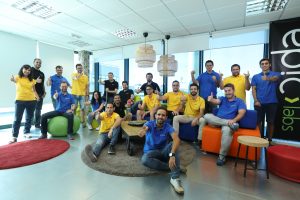
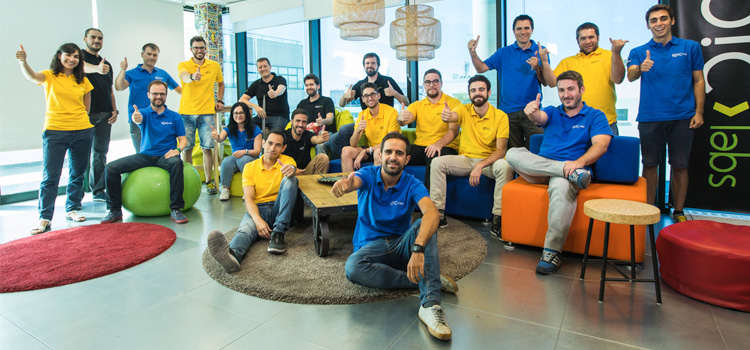
Epic Labs will be present at IBC 2017 responding to the software engineering, innovation and digital transformation challenges in Broadcast and Media.
The great talent of Epic Labs Engineering Team is being recognized by many Broadcast and Media companies from the USA, Japan, Singapore, Switzerland or Spain.
The Media industry is facing an unprecedent transition as dedicated hardware is gradually being abandoned in favor to cloud and software-based architectures. There is also an evolution on the business models and content delivery experiences. In this continuous changing scenario is mandatory to partner with knowledge-centric companies to drive innovation processes.
Epic Labs services are comprised by a premium Engineering Team coming from companies like Akamai, Dell EMC, NEC, or Pivotal. This knowledge and capacity, combined with innovative agile methodologies and culture are helping Media companies optimize the current operations, create new digital products, cloud, virtualization and IP-based broadcast solutions, innovative experiences and enhanced monetization models.
 Diego García, Epic Sales: “Every day we see how the IT areas of traditional broadcast are ganining relevance and visibility. If we look further the presence of IT-folks inside the broadcast companies technical departments will be massive. We are finding great opportunities to partner with Media and Broadcasting companies to successfully merge these two worlds”.
Diego García, Epic Sales: “Every day we see how the IT areas of traditional broadcast are ganining relevance and visibility. If we look further the presence of IT-folks inside the broadcast companies technical departments will be massive. We are finding great opportunities to partner with Media and Broadcasting companies to successfully merge these two worlds”.
Epic Labs has recently joined the DASH Industry Forum and will deploy a Team of people at IBC, where the company wants to leverage it´s own value proposition, and also increase customers and partners.
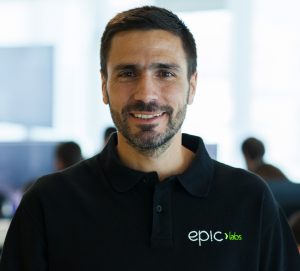 Alfonso Peletier, Epic Labs Founder & CEO: ”We are excited to attend this new IBC where we look to meet customers and partners to share market insights, trends and experiences. Also, an exceptional chance to seek for additional opportunities to further partner and share insight on Epic Labs areas of research for Media on real-time video, machine learning or blockchain”.
Alfonso Peletier, Epic Labs Founder & CEO: ”We are excited to attend this new IBC where we look to meet customers and partners to share market insights, trends and experiences. Also, an exceptional chance to seek for additional opportunities to further partner and share insight on Epic Labs areas of research for Media on real-time video, machine learning or blockchain”.
For schedule a meeting with Epic Labs at IBC 2017, please send an email to: diego@epiclabs.io / info@epiclabs.io
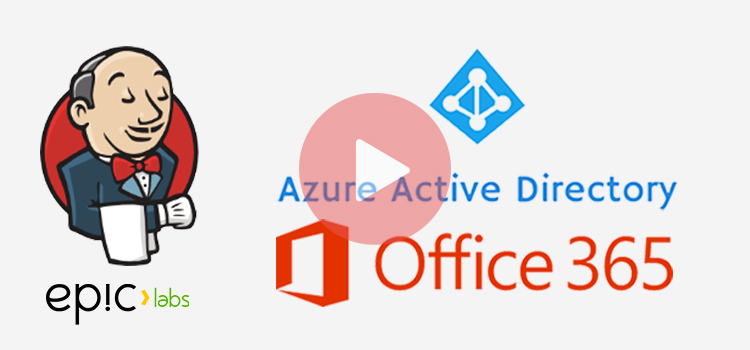
If you use Office 365, your subscription comes with Azure Active Directory, that you can use to integrate authentication with your applications.
Leandro Guillen is driving us to a quick intro to OpenStack on our #EpicFriday.
Slides at Slideshare.
More tech talks in Epic Academy.
React fue la librería de 2015. Se ha metido de lleno en los stacks de los gigantes de la industria como Facebook, Netflix, Instagram, Apple, Airbnb, Paypal, etc.
Uno de los factores diferenciadores respecto a otras soluciones como Angular o Ember es que se define como una “librería para construir interfaces de usuario”, no como un framework al uso.
El minimalismo de React implica cuestionarse el tooling necesario para construir una aplicación compleja. Desde el manejo de los side effects hasta la gestión de las rutas, pasando por el formato del store y por el fetching de datos.
Hay tal cantidad de tooling que en parte se le atribuye al ecosistema de React la “Javascript Fatigue”, incluso importantes nombres de la industria critican la cantidad de boilerplate que hay que escribir en una aplicación grande.
Tech Talk by Jaime Llamas on our #EpicFriday about Angular. Enjoy!
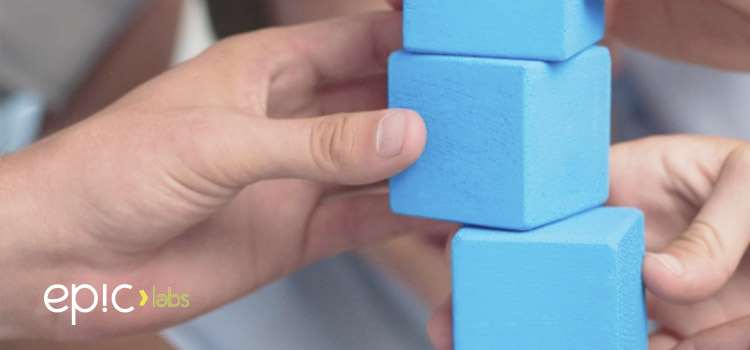

EtherDune is a new easy to use TCP/IP library for Arduino that supports ENC28J60. It is perfect if you want to get started very quickly and want to write maintainable, easy to read code in a small size.
GitHub homepage: https://github.com/epiclabs-io/etherdune
Documentation available here.